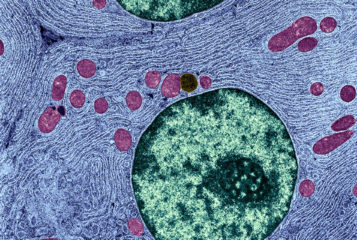At PET's recent conference, Professor Azim Surani claimed that permission to carry out experiments on embryos beyond the 14-day rule could make a huge difference to research. It may be time to review the ethical reasoning behind this time limit.
It is possible to reconsider the 14-day rule and still ascribe a minimal moral status to the human embryo. Generally people advocating research on embryos do not consider that they have any moral value. However, there is a position that moral value increases with development, with some intrinsic value from the earliest stages, because it is a new life with potential to develop into an entity with considerable moral status. By this argument, an embryo ought not to be used as the mere means to any end.
Currently research on embryos up to 14 days is considered ethical on the basis that it precedes individuation and the earliest formation of the neural system. No harm is done to an entity which a) may become more than one person and b) is unable to perceive pain. When the Warnock Committee laid the basis for 'how it is right to treat the embryo', the emphasis was to stop research before the formation of the primitive streak, the precursor of the nervous system. There was much discussion about the earliest time that pain could be perceived, and destruction at 14 days was a rather arbitrary compromise between gaining the utilitarian benefits of scientific research and alleviating public concern.
Others have commented on the need for public engagement in this debate. Extending the time limit might provoke public concern about using embryos for research. However, this is unwarranted. While there should be (and are) constraints on the use of embryos, the potential benefits to many people from extending the research period outweigh other considerations. There is no moral difference between the research embryo and the embryo developing in the womb. Yet there is an inconsistency in how the law treats in vitro and in vivo embryos.
In the UK, termination is regularly permitted up to 24 weeks if there is greater risk to the mental or physical health of a woman or her current family through continuation of the pregnancy. Termination is also legally carried out beyond 24 weeks in more limited circumstances. Extending the time frame for genome-editing research beyond 14 days for important medical purposes could potentially benefit many more people than currently benefit from a late termination. Many also consider that until the embryo is able to hold interests, requiring both brain activity and neural development, it cannot be harmed.
It is illogical to protect the 'special status' of embryos by destroying them at 14 days to prevent harm when using them for the greater good of medical research, while permitting much older fetuses to be terminated through abortion for the greater good of the pregnant woman. A minimal moral value can be trumped by considerations of existing people, and there are good reasons why this should and does happen. Provided that there is a greater good that may be derived from research on older embryos that may benefit a wider public, why keep the 14-day rule?
The moral value of an embryo may be minimal, but should not be ignored. In arguing that extending the 14-day rule does not infringe its moral value until it can perceive pain (and opinions vary on whether that might occur a few days or a few weeks later), I would not advocate permitting the use of the embryo for any purpose other than important medical research.
To this end, there are already safeguards in place. The HFEA, Human Fertilisation and Embryology Authority, licensing process strictly regulates the purposes for which embryos may be used, limiting it to important medical research likely to benefit a wider public. However, it is important to maintain strict regulations on the purpose of this research, both to respect the moral value of the embryo and to allay public fears.
Extending the timeframe over which research can take place does not infringe the idea that the embryo is a special entity, and may enable research such as embryo editing through CRISPR/Cas9 to bring enormous benefits to society. We must continue to ensure that the human embryo is used in research only if it is absolutely necessary, the research's aims cannot be achieved any other way, and the purpose of the research is to alleviate suffering.








Leave a Reply
You must be logged in to post a comment.